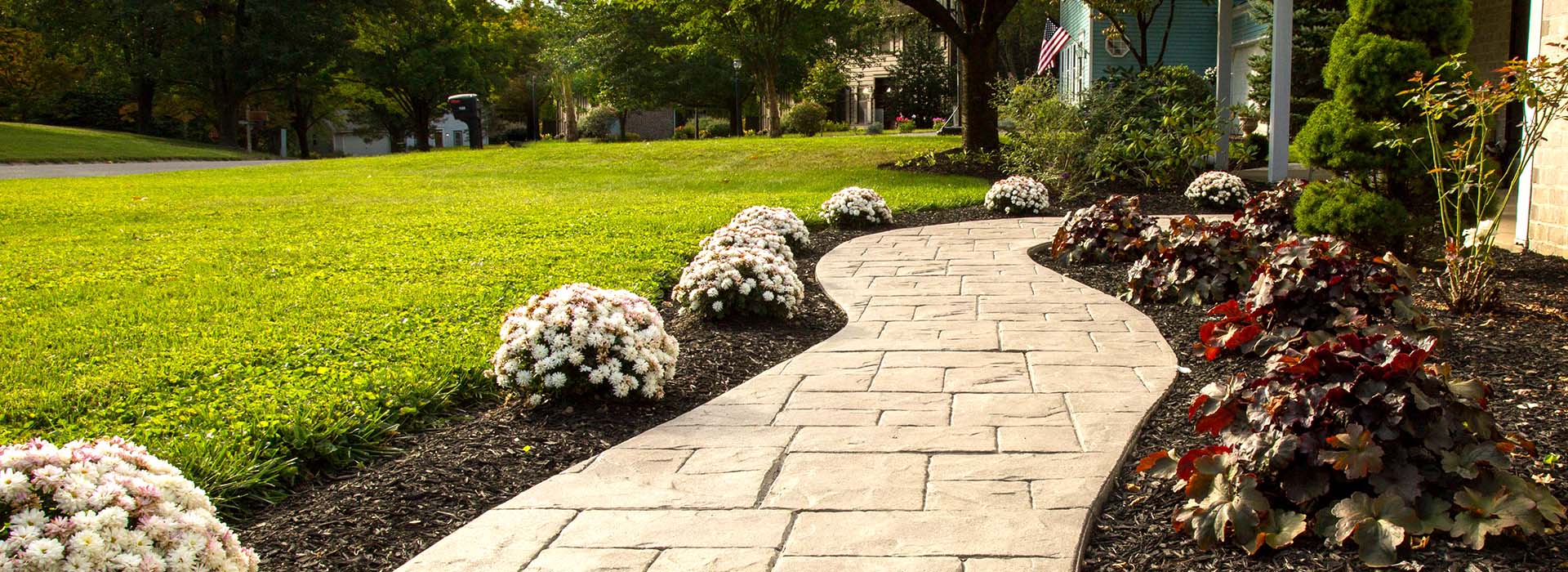
Concrete Driveways & Sidewalks
As any Realtor will tell you, a home’s curb appeal (how it looks from the road) sets a buyer’s or your guest’s expectations while entering the home. Driveways and sidewalks are one of the first things guests see when they approach your home or business. They endure wear and tear from being exposed to the elements year-round and the heavy vehicle traffic they must serve. This is why it’s important to ensure you have a durable and low-maintenance material that will sustain itself over the years. Whether your concrete project is residential or commercial, big or small, give us a call! When looking for a reliable concrete company in Greenville SC, your search stops here.
We can help restore the visual appearance and functionality of your driveways and sidewalks; whether you are looking for a basic concrete slab/pour, or you want to take it to the next level with specialty designs. Concrete driveways and concrete sidewalks offer distinct advantages verse asphalt and other options.
1. Lifecycle Expense
For some, budgetary considerations may drive their decision to go with an asphalt product that offers lower upfront costs. However, a concrete driveway lasts longer with the service life of a concrete driveway being an average of about 60 percent longer than its asphalt counterpart. As a result, the upfront cost savings of asphalt is typically offset by higher maintenance costs as the liquid binder that holds the aggregates together is subject to cracking, disintegration, and distortion due to exposure to UV radiation, oxidation, water, and chemicals.
2. Beauty, Curb Appeal, and Resale Value
For many, the standard light gray surface and creative design options offer considerable curb appeal to owners and prospective home buyers. Colored concrete is the answer for homeowners who want a darker surface. Stamped concrete surfaces add a pleasing texture that often blends beautifully with a home’s architectural design. Additionally, exposed aggregates can offer a highly textured, three-dimensional look.
3. Reaction to Heat and Light
Asphalt has heat absorption properties while concrete offers a higher degree of heat reflectance properties. This makes concrete pavements cooler since they absorb less UV radiation than their asphalt counterparts. A quick barefoot walk on the two types of surfaces on a hot day will make the difference clear to the touch! Standard concrete’s light reflectance also reduces landscaping lighting requirements. Since asphalt absorbs so much light, an asphalt driveway may require about a third more lighting than one made of concrete resulting in higher energy expenditure over the life of the material.
4. Load Bearing Capacity
Concrete is a rigid, non-flexible material that can handle heavier loads than asphalt. This results in less rutting over time which can hold rainwater and result in even further damage.
5. Maintenance Expense
Properly installed driveways and sidewalks use contraction joints to isolate and direct any cracking over time. Occasional sealing of the concrete will extend its life even further. From the day an asphalt drive is installed, the binder begins to dry out. To slow this process, more periodic seal coating is required. Even with scheduled resealing, however, an asphalt driveway or sidewalk usually does not last as long as its concrete counterpart.
6. Environmental Considerations
When an asphalt driveway is first installed, it releases evaporative oils onto the surface and into the air that can even get on the soles of shoes. By contrast, concrete is a more natural product with fewer airborne pollutants.
Concrete also requires less energy overall to both produce and install the finished driveway or sidewalk. By contrast, a great deal of energy is required to heat hot mix asphalt to the required 200-250 degrees F. Seal coating an asphalt driveway every 3-5 years consumes more petroleum products. Considering a concrete driveway and sidewalk last much longer, the energy savings is significantly friendlier.
